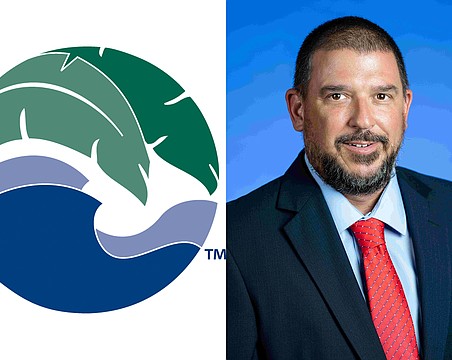Respect Your Directors (Tampa edition)
The chairman of St. Petersburg's Signature Bank tells business executives to get financial statements to their boards before the eve of a meeting.
By Francis X. Gilpin
Associate Editor
The care and feeding of corporate boards requires executives to subordinate their own egos so policy-setters get accurate and concise information.
That is Beth A. Houghton's blunt advice for improving the presentation of financial information to governing boards.
"Your purpose is not to look brilliant, necessarily," says Houghton. "Your purpose is to provide understanding with the least amount of effort on the part of the decision-maker."
She probably knows what she is talking about. Houghton has presented financial data as well as been on receiving end. A certified public accountant and attorney, Houghton chairs Signature Bank, a 5-year-old commercial bank in St. Petersburg that reported assets of almost $109 million at the end of 2003.
Houghton spoke May 7 at the University of South Florida St. Petersburg's first seminar on social responsibility and corporate reporting put on by its business college. The gulf-front setting at the Don Cesar Beach Resort and Spa on St. Pete Beach did nothing to soften Houghton's message.
First and foremost, she told her audience, observe common courtesy. Give your board at least a week to digest backup material before asking for a decision at a meeting.
"I have seen people say, 'Oh, but I can't get it out in time. It's impossible,' " says Houghton. "Bull----. It just ain't true. We've all seen and we all know how one can manage a close of financial statements to get it done in time. It's a matter of determining to do it.
"You can do it at the last minute. You can do it earlier. Do it earlier and get the information to your board members or to your decision-makers in a timely fashion. Period."
The 49-year-old bank board head acknowledged the on-time directive isn't always easy to accomplish. Corporate directors tend to be busy and travel frequently. Courier service or overnight mail might not catch up with them. Most directors want board agendas and backup material sent over the Internet, she says, but a few resist.
"In other words, we're not using that excuse, 'Well, I sent it out,' '' says Houghton. "Your goal is not to send it out. Your goal is for them to get it."
A chief financial officer or outside auditor should be mindful of who on the board prefers what information in the financials.
When Houghton was CFO and general counsel at All Children's Health System, the St. Petersburg hospital's board was more interested in the cash that came in for a reporting period than how much philanthropy was projected from estate and trusts to ease operating deficits.
So, after presenting an income statement for a hospital research institute according to generally accepted accounting principles, Houghton tossed GAAP out the window and redid her reports. She devised a customized income statement, in which she backed out inter-company transfers and rearranged such non-cash items as depreciation in a manner that seemed to enable board members to understand the numbers better.
"I had members of that board for whom one of those numbers was the most important number. They did not have a consensus, however," says Houghton. "So it was my job to provide any relevant information to all of them simultaneously ¦ I took a 25-minute discussion at every board meeting [down] to one minute because they looked and would see the number that they wanted to know and they'd go on. That was the point. They got what they really wanted to know and they could expend their rare and unique and exceedingly valuable time on the right thing.
"To me, that was criminal to waste those folks' time on the wrong things because you hadn't laid information out in the most meaningful way. That was my job. It was not their job to try to figure it out."
How do company executives know when they aren't filling that bill?
"When you start to see the people in your audience not listening to you anymore, but rather scribbling on the side what they really want to know, that's a clue that perhaps you should do that math for them," says Houghton. "They're going to do that. So you might as well put it out there.
The scribblers may even include other members of the management team. CEOs, for example, may be most curious about what the enterprise needs to do for the rest of the year in order for them to get their bonus.
If you're six or nine months into the fiscal year, there's no sense trying to hide a weak quarter.
`"Oh, the month was great. So you talk about that. 'OK, skip over to page 10,' and you don't do year-to-date," says Houghton. "That's transparent enough that they'll get it and probably call you on it anyway. But again, if your goal is to not just look rosy but to convey the information, you will in fact talk about [more than] the current month's results."
Presenting all the key facts can help the board help management, contends Houghton. In health care, management may blame lower HMO reimbursements for a poor quarter. But a board member, armed with more information, could point to managed-care contracts that haven't been renegotiated in five years.
Yet go easy on loading up board members with too much paper that just goes to show how much work you did before the meeting.
Placing a single copy of the detailed analysis on the boardroom table is enough in most situations, says Houghton. "You may want to bring those things, not just to shine your halo, but in fact to convey a sense of the complexity of the matter, if that's necessary," she says.
Compiling an unabridged version of everything you did since their last meeting, of course, is another bureaucratic habit that can delay getting the essential information into the hands of board members.
Ensuring they receive financials a minimum of one week before meetings is among the courtesies that Houghton somewhat facetiously labels "good hygiene."
If executives don't realize their importance, Houghton suggests they volunteer to serve on a local nonprofit board.
"You may know and understand timely, timely, timely," says Houghton. "But you'll get hacked when you're head of the finance committee and you don't get the statements until the night before. And, oh, by the way, you had something else to do the night before. You weren't waiting, with the bated breath, for these financial statements."
After such an experience, Houghton told her Don Cesar seminar audience: "You will never present financial statements in an untimely way."





